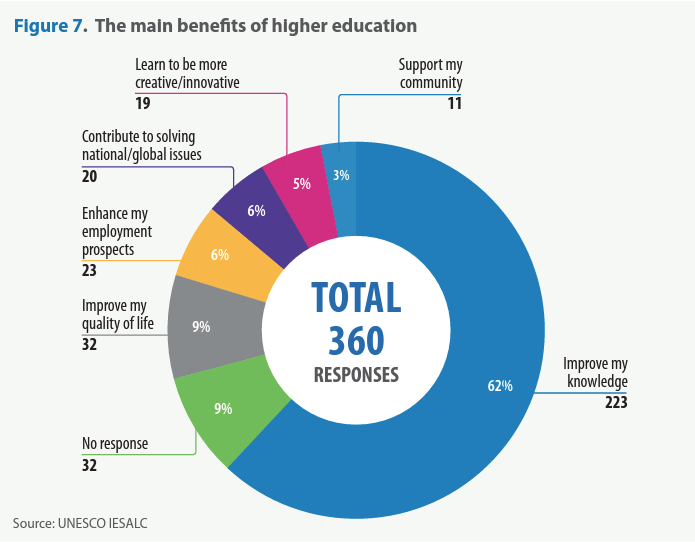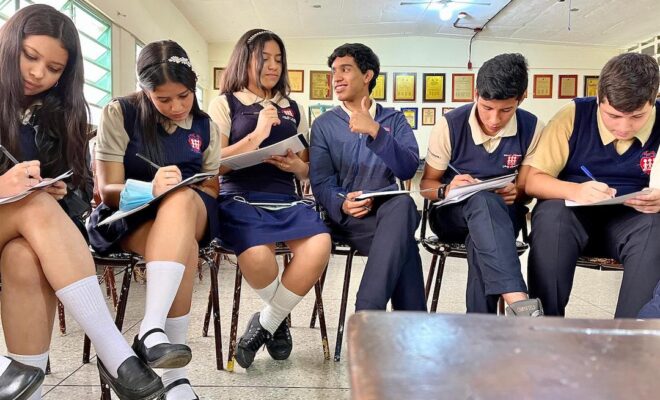What do youth say about higher education in the future?

‘I would like higher education to be an education with equality for all and inclusive, accessible in the different parts of the country, with quality training where new communication technologies, which is achieved through cultural exchange since the first year of study,’ said a 15-year-old from Peru, when asked about her expectations for higher education in the future.
Sometimes the concerns and hopes of young people are not considered. Bringing their thoughts and perspectives to the forefront inspired the report The higher education we want: Youth voices on the futures of higher education, coordinated by the UNESCO International Institute for Higher Education in Latin America and the Caribbean (IESALC).
More than 100 youth, mainly aged 15 to 17 from 43 countries, were consulted and their findings reveal their visions for higher education and how they see themselves in the future. The report, launched on September 28, shows that young people’s hopes and concerns for 2050 are remarkably similar worldwide. Global issues such as poverty and war coupled with climate change and sustainability represent the main areas of both optimism and fear.
‘Listening carefully and engaging with youth, who act as the bridge between higher education and societal changes, is conducive to greater transformation for all. In recent decades, UNESCO has been paying more attention to their voices and boosting their empowerment to now embark on better futures.’
UNESCO IESALC Director, Francesc Pedró.
Most participants in the consultation believe that acquiring knowledge is the main benefit of higher education – not simply improving their job prospects. These responses highlight not only the fact that higher education has individual benefits, but that youth are also thinking about how it can impact their local and global societies and communities.

‘In 2050, higher education would be there to benefit the world by producing innovative, creative, and accepting people. My hope is that instead of being held back by the constraints of status and fame, in 2050, the only goal of higher education would be to better its students, who will go on to better the world’ (Youth consultation participant, age 16, Female, Kuwait)
More than 90% of the youth currently plan to pursue higher education, more than double the current global higher education enrollment rate of 40%. Most youth participants said they plan to study science, technology, engineering and mathematics (STEM), or the social sciences. They believe higher education should be more accessible, innovative, high quality, sustainable, developmental, and equitable.
Calls to action
The consultation resulted in four sets of recommendations for higher education:
- Raise educational expectations by supporting youth to link their personal and social visions and be more responsive to local and international social needs.
- Provide students and societies with tools for life by combining support services with pedagogical design and the creation or expansion of mentoring programs.
- Draw attention to local and global issues by opening new avenues for thoughts about the future and promoting community service.
- Engage together in the search for better futures by developing strategies for youth engagement and consultation with young people from more diverse backgrounds.
- The consultation, which combined questionnaires, discussions and workshops, was made possible through partnerships with the UNESCO Associated Schools Network (ASPnet) and the International Centre for Innovation in Higher Education under the auspices of UNESCO (UNESCO ICHEI).
Other related reports
Thinking higher and beyond: perspectives on the futures of higher education to 2050
Pathways to 2050 and beyond: findings from a public consultation on the futures of higher education
RELATED ITEMS








